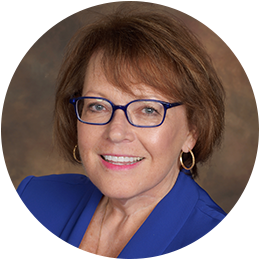
Many organizations must “grow their own” credentialing staff. In other words, there just are not enough trained and experienced credentialers available for the positions that need to be filled.
What are the qualities that you look for when you hire someone to train to be a credentialer? Obviously, most of us would look for someone who is organized and familiar with using technology. Communication skills are important as well. But what other qualities are necessary to be a great credentialer? Here are my top five:
Curiosity
I know that I would not have been successful in credentialing without being curious. Probably my most frequent question when I was learning this field was “why?” I believe that if someone understands “why” they can get to the “how” part. For example, if you understand why it is important to get a reference letter from the residency program director for an applicant that recently completed his/her residency, it won’t be so difficult to determine the questions that should be answered by the program director. Someone who just follows a procedure without being curious will never grow into a great credentialer.
Critical Thinking Skills
While it is true that the credentialing process – whether it is an initial application or reappointment – follows an established procedure, there are frequently necessary departures from the procedure. For example, your procedure may require that you obtain three peer references for new applicants (and a peer is defined as someone with the same type of license as the applicant). Let’s say that you have a CRNA applicant who has worked in an anesthesiology practice with anesthesiologists only for the past five years. Applying critical thinking skills to this situation will lead you to using the anesthesiologists for reference purposes – even though they have a different license and therefore are not a peer, they are in the best position to provide information about the CRNA’s current clinical competency. If you hire someone who does not have good critical thinking skills you will constantly be asked to deal with these situations and tell the credentialer what to do. That may be okay for a beginner – but it will get exhausting after the credentialer has been on the job for a year or two!
Customer Focus
A successful credentialer needs to be customer focused. Customers include the providers that he/she credentials, as well as departments with whom the credentialer interacts (recruitment, employee health, risk management, quality, to name a few). Credentialers who are not customer focused can make the workplace an unhappy place to be – they are typically the type of employees who complain about other departments, about the applications that they are working on, etc.
Adaptable
There are constant changes in credentialing – how something gets verified, for example, the way that software works, the way a committee conducts its business. It is critical for a great credentialer to be able to adapt to change – and to sometimes lead those changes. I don’t want to work with people who cannot – or will not - adapt to changes.
Passion
This one may be a bit more difficult to detect in a job applicant. Credentialing can sometimes be routine – but when you understand and appreciate that we do credentialing to protect patients, passion for the outcome of credentialing gets us past some of the mundane work. You never know when your next applicant will be someone who has falsified their credentials or has competency issues.
